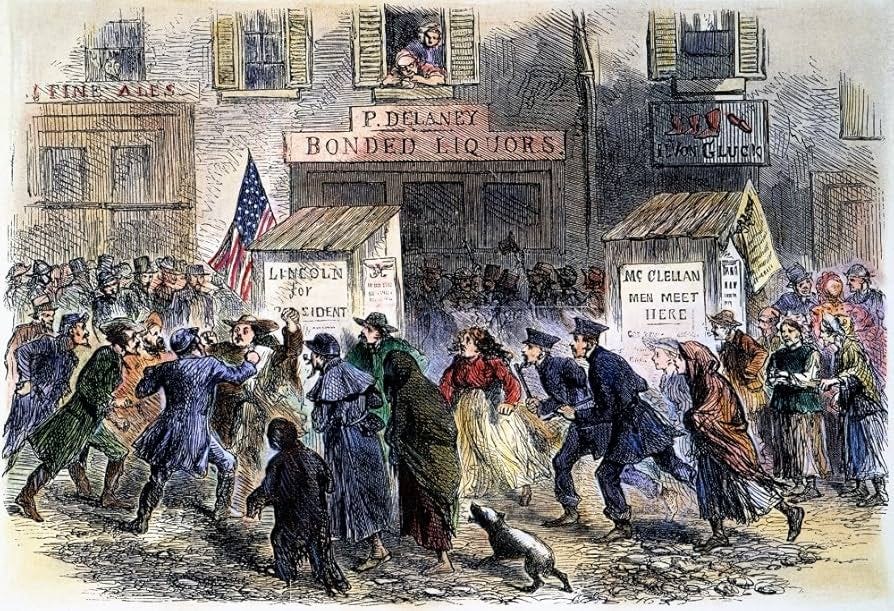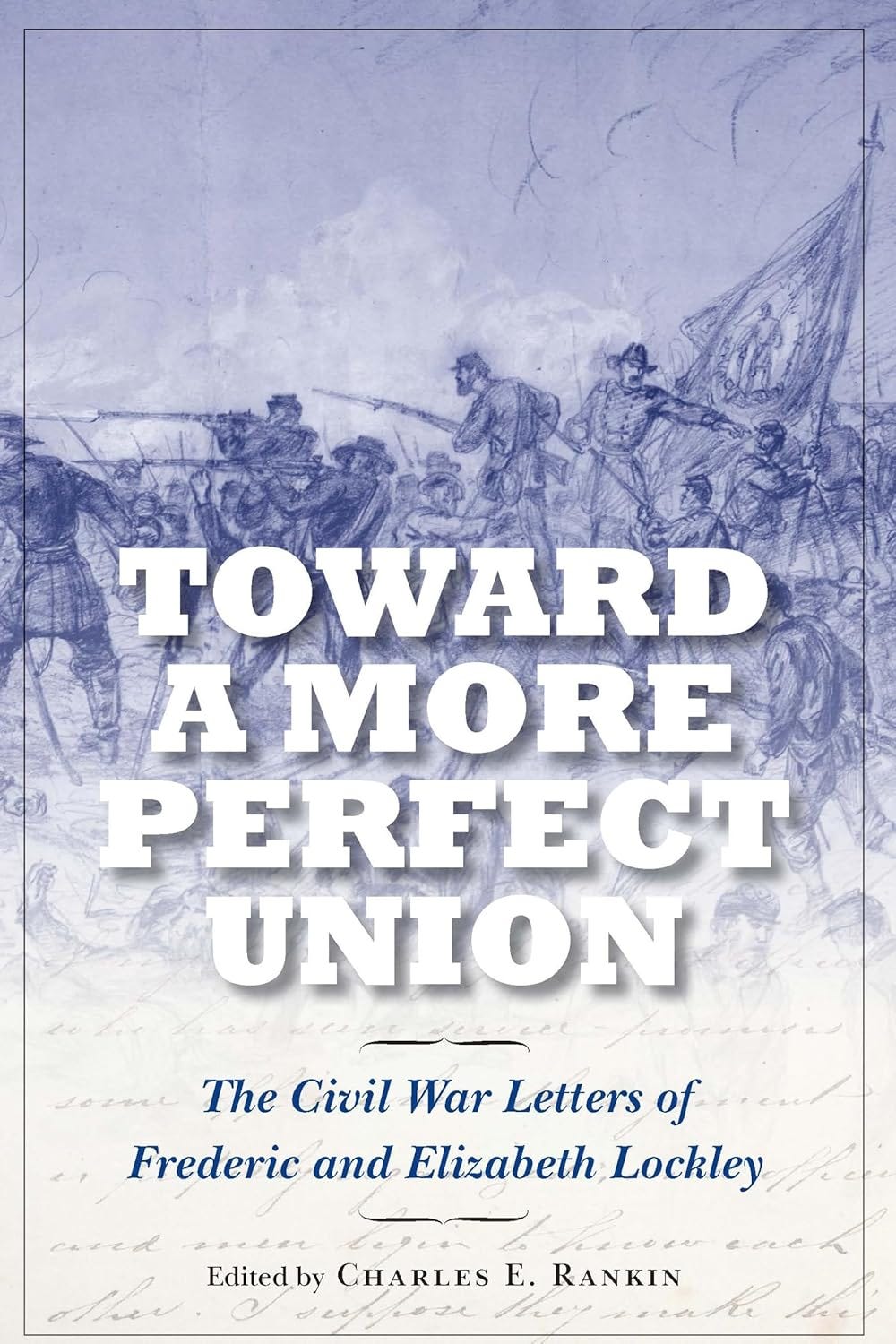"The People Are In a Fever of Excitement and Suspense"
A reminder that the United States once held a presidential election in the middle of a bloody civil war.

Election day has finally arrived. I know many of you are feeling anxious, regardless of who you hope to see elected president. The level of anxiety that many of you are experiencing, including myself, is a reflective of our conviction that something fundamental about this country is on the line. This is indisputable. Regardless of who wins, this country’s trajectory will be decisively redirected one way or another moving forward.
Along with the anxiety—whether you are aware of it or not—comes the belief that there is something special or unique about this specific presidential election. The rhetoric of the past few months reinforces this outlook even further. How many times have we been told that this is the most important election of our lifetime or in American history?
I am skeptical that history can be of much help in alleviating our collective anxiety and fear about our immediate and long-term future, but I do think it can be instructive to remind ourselves that we’ve been here before, that the same doubts and fears about our nation’s future, in moments just like this, have always been present.
We have to live in our own shoes, but we can and should take a step back to see this moment as part of a continuum and larger historical narrative. We can find strength and perhaps even a little optimism by reminding ourselves not only that we’ve been here before, but that as a nation we’ve been in much worse straits.
We might even remind ourselves that this nation once managed to hold a presidential election in the midst of a bloody civil war.
Over the past few weeks I’ve been reading the letters of Frederic E. Lockley and his wife Elizabeth. It’s an incredible collection published under the title Toward A More Perfect Union: The Civil War Letters of Frederic and Elizabeth Lockley and edited by Charles E. Rankin.
Living in Albany, New York, the young couple promised to write one another once a week when Frederic enlisted in the 113th New York Infantry Regiment in July 1862. Just a few days before the 1864 presidential election that pitted Abraham Lincoln against George McClellan, Elizabeth wrote to her husband to share the news from home, her fears about election day, and her unwavering optimism about the future of the nation.
She writes about rumors of violence on election day as well as the news that soldiers were being intimidated from voting, but her fears are balanced by an enduring faith that the cause for which she believed the nation was fighting for would prevail.
Albany, New York
Nov. 6th, 1864
My very dear Husband,
Would that I could spend this lovely Sabbath day with you, but such wishes are vain and should not I suppose be indulged in. No letters from you since Monday when I rec two, one dated the 27th the other the 28th. I shall hope and look eagerly for one tomorrow. I hope my letters now reach you as usual. As you may suppose nothing is though of or talked of but the election. The people are in a fever of excitement and suspense[,] not but that all seem confidently to look forward to Lincoln’s reelection but the astounding revelations that have come to light within the last three weeks, of fraud, and murderous plots, and conspiracies make even the stout-hearted ones of the land pause and tremble to think what the result might have been had not all this wickedness come to light in time to crush it. O! the wickedness of the heart…I can think of naught else…I feel as if I had grown very much older during the last month or two.
I went last evening in company with Dr. Becket[t]’s sister in law to the last Union meeting that will be held it was the closing scene[.] These meetings which are held at Tweddle House have ever been largely attended by the most respectable class of citizens both men and women. The intelligent[,] the noble and the patriotic. I firmly and truly believe that our nation’s destiny rests not in the hands of men but a higher power controls it. God reigns we have naught to fear. Our republic shall live, we shall come out of this furnace of affliction and trial; refined and purified a nobler and truer people, our country shall indeed be one of liberty and freedom, with the blighting stain and curse of slavery forever removed from it. Too long ah too long has this incubus, this crying sin rested upon the bosom of this fair land…. There must be an intense anxiety in the army. The soldiers having the power to vote and being defrauded of it or attempting to do so must make them feel desperate. What is the. meaning of Col. Murphy’s arrest in Washington? Is it possible that he too has been dabbling in the most despicable fraud voting. Is he a republican or democrat? Some people predict a terrible row here election day. Gov Seymour I believe that there shall be no militia at the pole [sic] but perfect order shall be enforced. Should they begin to riot I presume he thinks to stop them by his bland palaver calling them his friends. Another week and the great question in regard to the nation’s welfare will be settled. All will be well. I fear not.
Very aff your wife
Lizzie
A quiet optimism emerges from this otherwise dark picture of the nation and Elizabeth’s own community on the eve of a presidential election in the middle of a civil war. It’s a reminder that we’ll get through this.
For now, go out and vote if you haven’t done so already. If you can, take some today to get out of the house or try to find a peaceful spot on your lunch break.
See you on the other side.





The money quote: “I am skeptical that history can be of much help in alleviating our collective anxiety and fear about our immediate and long-term future, but I do think it can be instructive to remind ourselves that we’ve been hear before, that the same doubts and fears about our nation’s future, in moments just like this, have always been present..“
I read this before I voted today and it brought tears to my eyes. The letter is beautifully written with themes that resonate today. Thanks for posting.